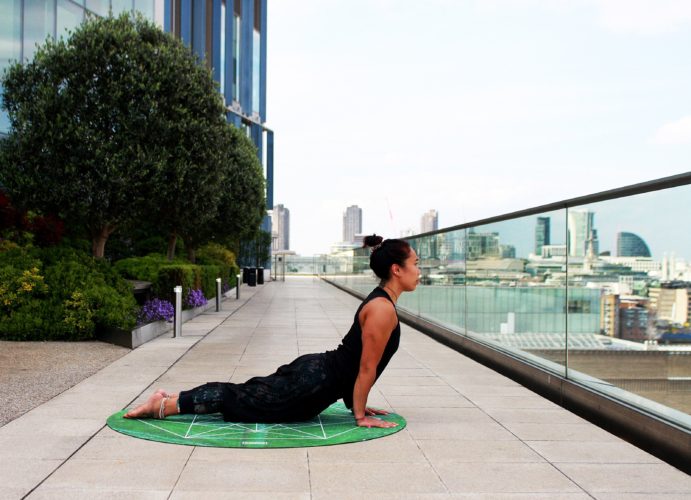
— Maria R. Riegger & J. C. Steel
Meet the introverts
J.C. Steel and Maria Riegger are introverts, but not just any introverts. We’re INTJs. INTJs are the second-rarest Myers-Briggs personality type, at just over 2.1% of the population, and INTJ women are the rarest of all the Myers-Briggs personality types, at only about .3% of the population.
We’ve also both lived in cultures that were quite extroverted, namely Spain and North America. J.C. (a self-described “ex-boatbum”) is from Gibraltar and currently lives in Canada. Maria is a native of the Washington, DC area and has lived there most of her life, and lived in Barcelona for several years.
In Susan Cain’s book Quiet: The Power of Introverts in a World that Can’t Stop Talking, Cain discusses how the United States is one of the most extroverted cultures in the world. Spain also has a terribly extroverted culture, where people never seem to do anything alone. There is constant pressure to go out and be with other people. It’s exhausting.
So we got to thinking. What’s it like for introverts to live in predominantly extroverted cultures? How do they manage?
Below we share our experiences. Please let us know yours in the comments!
How do you experience introversion in daily life?
J.C.: Having to cope with constant noise, peoples’ expectations, and the pressure to make meaningless conversation drains my energy and piles on the stress. I’m frequently tired, impatient, and depressed, because a full-time job means I’m surrounded by people five days out of seven. For me, recharging means time alone with my cats, with a good book in one hand and a mug of tea in the other. I’m an introvert to my bones, and alone time is like a long, hot bubble bath and massage for the brain.
Maria: I love being alone, and I enjoy my own company. Almost any type of stimulation, whether noise, touch, etc., saps my energy. The more people and/or the more noise, the more quickly my energy is drained. I constantly live with a headache of varying degree, and I have tinnitus 100% of the time.

Do you consider your current place of residence more introverted or extroverted? Is it a good fit for you?
J.C.: I’ve lived in a lot of places, and while Western Canada isn’t as inescapably social as some cultures, there’s still an expectation that if you’re in an elevator with someone, you’re going to come up with something to say about the weather, or the headlines, or what a pretty top they’re wearing. Going into a shop here can be quite a challenge for an introvert, as a number of stores train the staff to get right in your face as soon as you enter, ask what you’re looking for, can they bring you anything, and start small talk. The upside for me is that Canada, while cherishing the North American extroverted ideal, is also largely pretty tolerant. Canada also benefits from huge amounts of wild space; hikers and skiers are lost and never found within half an hour of my front door, so if I really need to escape for an hour or so, it’s not that hard. It’s a pretty good fit.
Maria: The location where I currently live, in northern Virginia right outside of Washington, DC, is certainly more of an extroverted culture. There is definitely a social pressure to “see and be seen” and to attend events, and also a strong “fear of missing out” (as opposed to my fear of social gatherings and small talk). People here seem to feel more important the busier they are, and that kind of frenetic activity is anathema to me. The idea of a happy hour at a loud bar makes me want to run away. For me, the activities that I do must have meaning, and “busy” does not necessarily equate to “meaningful.”
That being said, there are plenty of opportunities where I live to visit museums, parks, and historical sites, which is fantastic. I do, however, make sure to visit the art galleries when they are the least crowded. The DC area is also well-situated for travel.
I’d say that this area is generally a good fit for me because of the cultural and travel opportunities, although ideally I would live a little further from a big city and have more space and engage with less people and traffic.
Do you find some types of extrovert, or culture, are more accepting of introversion than others?
J.C.: Yes, absolutely. There are a few incredibly extroverted people I know who are nonetheless able to get outside their own heads and understand that making their weird-ass introvert friend happy actually doesn’t mean dragging them out to a party, but can mean simply standing between them and the rest of the group and doing all the talking for two. I really appreciate that kind of person. Often, people willing to make that kind of leap of understanding can also have the kinds of conversations introverts do like: zero small talk, and frequent dives down conversational rabbit holes about nature versus nurture, what decision you made in a parallel universe, and why no one put the writers of ‘Mass Effect: Andromeda’ out of our collective misery before they could inflict a crappy plot on the world.
Maria: Of all the places I’ve lived, I think the U.K. seemed to be the most accepting of introversion, where the idea of going out by yourself or sitting alone to read a book was not seen as unusual. In Spain, you were branded as “weird” or “anti-social” if you did things by yourself. In fact, the only people I knew in Barcelona who went sightseeing or to the movies by themselves were American ex-pats.
What is your go-to coping technique that helps you function among extroverts?
J.C.: I spent several educational years in a boarding school in the UK, so along with excellent signature-forging skills, a 90% proof liver, and some light breaking and entering, I gained a lot of coping mechanisms. My most socially acceptable favourites are a book in the wrong language for whichever country I’m in, which lets me play the “I don’t speak…” card; permanent headphones; and keeping a set of mental flash cards current with some excuses I can pull out of my hip pocket on the fly to get myself out of encounters.
Maria: Hide in the bathroom! Just kidding (but not really). If I can’t get home right away and crawl under the covers with a book, I’ll seek out a quiet corner and tune out for a bit. At work sometimes I’ll wear my earbuds or ear plugs.
J.C.: I realised pretty early on that I wasn’t like most other kids. Their idea of fun was to swim and run all over the harbour making extraordinary amounts of noise; mine was to hang out (literally, if the bosun’s chair was rigged) and read a book. While I could enjoy noise and group activity for an hour or so, a full afternoon would leave me so exhausted I would sleep-walk – not a great idea on a yacht.
Understanding that introversion was actually a thing, rather than ‘shyness’ or ‘laziness’ took a lot more time, and a lot more self-awareness, than I had in my teens and early twenties. I drank far too much in school and university, which let me camouflage just how difficult being out and surrounded by people was for me. These days, I preserve my mental health and produce a lie that extroverts can accept to avoid most social events.
Maria: I didn’t understand the chemical component to introversion until I was in my 30s. From the time I was around ten I knew that I was different in that I didn’t enjoy social gatherings as much as others seemed to, and I preferred to read alone in my room much of the time. I would “melt down” after too much stimulation, when others didn’t seem to. I remember being called anti-social and selfish by others. I would disappear from social events without saying anything because I could no longer handle it (and hated it when others pressured me to stay), and people thus branded me as “odd”.
I had an a-ha moment when I learned to tell people “I have plans” to decline their invitations instead of “I want to be home alone”. If you say, “I have plans”, they don’t question you, but if you say you prefer to stay at home, somehow that appears unacceptable and others will often pressure you to go out, and I hate feeling pressured.

What is your least favourite extrovert reaction to an introvert?
J.C.: I absolutely have to agree with Maria on this one. People trying to pressure or guilt me into entertaining them at the expense of making myself miserable is right up there. I’d love it if trying to force conversation on someone who clearly isn’t interested one day ended up in the same category as groping someone without consent. Frankly, it’s about what it feels like on a bad day, with the caveat that I’ve got 15 years’ martial arts training, and I’m allowed to break a groper’s fingers and call it self-defence, whereas it’s ‘rude’ not to submit to forced small talk.
Maria: When people try to pressure me into attending social gatherings or pressure me in general. Please accept my first response and leave my alone. Also, when I don’t respond to texts right away, some people appear to get antsy. I always have the volume on my phone off because receiving calls and texts (especially texts) invades my private space, and I will deal with them when I am ready. I’m not going to respond to calls and texts immediately. I absolutely hate that about texting, the idea that people expect immediate responses. If it’s not urgent, I may take days to respond because I need alone time.
What do you most wish society in general understood about introverts?
J.C.: I’m not shy. I don’t necessarily dislike you. I’m not afraid of you. I simply don’t have the need to make pointless noise with other people in order to be happy. My brain is wired differently to an extrovert’s, and it’s not something that being forced to spend more time being noisily sociable will ‘cure’.
Maria: I wish more people understood that introversion is not something that can be changed. Introverts are more sensitive to stimulation and, as such, require solitude and quiet to recharge. Our brains are built this way. It’s like having blue eyes or being six feet tall. You can’t change it!

Do you feel there’s usually a direct correlation between introversion and the size of the book collection?
J.C.: *Cough* Over two thousand books in my house *cough* Um… I’m going with ‘very probably’ on that one. If I like a book, it stays with me and gets read and re-read, but I’m incapable of literary fidelity and tend to have two or three books open at once. Having a bookshop near enough to take my lunch break browsing for new bookshelf-fodder gives me spasms of glee.
Maria: Oh yes. I can’t speak for others, but I find myself rereading books out of familiarity. And I don’t like letting go of books; it makes me feel bad!
As an introvert, do you find the company of animals soothing?
J.C.: Very much so. I’ve had Siamese cats all my life, and while they aren’t most people’s definition of restful, I find that they’re actually a perfect offset for me; they’re perfectly happy to roost on top of me while I read, but if they want attention, or food, they’re loud, persistent, and irrepressible, which gets me off my rear to throw glittery balls for them and ensures they’re fed on time. I also love riding – horseback is my absolute favourite way to explore countryside, because horses, for the most part, are big, friendly, warm creatures that smell good and provide company without needing endless validation.
Maria: Mostly. I grew up with dogs, and I envy their carefree, seize-the-day attitude. Also, whatever horrible day you’ve had, they’re always happy to see you. And their goofiness is therapeutic. One of mine chased a leaf this morning!
Do you feel there’s any truth to the perception that INTJs simply don’t like people?
J.C.: Point of order: we don’t like dumbasses. We don’t like the helpless types that start the kettle and then come running in in a panic to tell you the water boiled and expect you to tell them what they should do next. Intelligent, non-needy people we can tolerate just fine (in limited amounts).
I’ve heard INTJs called the Sherlock Holmes personality type, and having watched the BBC remake, I can’t really argue. According to studies, there’s a strong correlation between INTJ and high IQ, where ‘high’ is defined as the 130 and over zone. Mind you, most of the population would say there’s also strong correlation between ‘INTJ’ and ‘asshole’, so there’s that. Since we’re a pretty rare type, it’s not usually a big problem.
Maria: Ooooo, maaayybe. INTJs like doing things our own way and we can’t stand incompetence or indecision. We also need a TON of alone time. When we don’t get to work on our own projects and be in “flow” state, we get very cranky. We also don’t see the point of “hanging out.” For us everything, even social activities, must have a purpose, such as seeing an interesting movie.
We also can’t stand wasting our time. It galls me when someone takes fifteen minutes to say something they could have said in thirty seconds (that’s why I can’t stand most work meetings). I’ve been told that extroverts need to voice a thought out loud in order to process it, so I try to be more understanding, but I can’t stand it when people waste my time.
What do you find the primary difference to be between someone who’s shy and an introvert?
J.C.: Tricky. In some ways an introvert and a shy person will present in a very similar way in a social setting. They’ll both tend to avoid big gatherings. In addition, there’s no restriction not on being a shy introvert; because you’re one doesn’t mean you aren’t the other. However, primarily I’d say it would probably present differently if there was some stress present in the setting: push an introvert far enough, and you may well get an earful. A shy person might have a greater tendency to stay quiet.
Maria: I’d say that a shy person may be afraid to speak up and may be cautious about meeting new people. An introvert will usually speak up only if he/she has something worthwhile to say (they typically won’t talk just to fill space), but they’re not necessarily afraid to speak up. Likewise, an introvert typically enjoys meaningful one-on-one conversations and, as such, would enjoy meeting new like-minded people.
Introversion is not something you can change. It has to do with your sensitivity to chemicals such as dopamine produced by the human body. This is something that Susan Cain really hits home in her book Quiet: The Power of Introverts in a World that Can’t Stop Talking. When we’re overstimulated, and the body produces too much of these chemicals, we become irritable and start to melt down. What does an introvert meltdown look like for you?
J.C.: I get cranky as hell. Usually, if I’m forced to deal with groups of people when sober (work being the most common example) I pull up a fake personality and compartmentalise. If I run into someone who just is that irritating, or if the requirement to be sociable goes on too long, there’s a (very) short progression from exhausted to irritable, and shortly after that I start losing control of my reactions. That’s when my alone time gets crucially important for everyone’s safety.
Maria: When I’m overstimulated, I start to get frontal lobe pressure, then ear pain. If the overstimulation continues, I have trouble concentrating and become fatigued, jittery, and short of breath. My head feels heavy and, at that point, I need to lie down and have absolute quiet. If I don’t get to recharge at that point, then after a while my digestion shuts down. If I’m at that final point, then it takes about two to three days of alone, quiet time to calm the jitteriness, and it takes a few more days after that to recharge my batteries/catch up on sleep. That is why I plan my activities carefully. I have a difficult time doing back-to-back social activities.
Care and feeding of the INTJ in the wild
So, you think you might know someone who might be an INTJ, and for some masochistic reason, you want to make it onto their ‘tolerate’ list, or maybe even into their little black book? Interesting.
Introverts, and INTJs in particular, don’t have casual friends. You’re either in the acquaintance zone, or you’re competing for a spot on a very, very short list – usually two to five people – of those the introvert really trusts and likes.
Go slowly. An INTJ will push your buttons without even meaning to. Take a deep breath and apply logic before you assume the worst. INTJs are rational to a fault and make shitty ‘there, there’ types. They’ll problem-solve and state what they see as the obvious solution. It’s how they help, and it can be a bit Old Testament-style.
If they’re being deliberately obscure, take the compliment; it means they assume you’re capable of keeping up.
If they don’t give you an opinion, take the hint; that’s the limit of INTJ social skills, in that they’ve realised you won’t want to hear what they have to say. Look on the bright side; they’re bothering to exercise them on you.
If you want to find out what your Myers-Briggs type is, there’s a free evaluation you can take here.
Thank you for reading!
“I’m not a psychopath. I’m a high-functioning sociopath; do your research!” — Sherlock Holmes.
————————-
J.C. Steel writes science fiction and fantasy, including vampire fiction. You can find her on http://jcsteelauthor.com.
Maria Riegger writes contemporary romance and has a nonfiction book on astrology coming out imminently. You can find her on www.lawschoolheretic.com.
Get helpful writing tips and more
in your inbox
Join the tribe and get free fiction and self-publishing tips.
Thank you for subscribing.
Something went wrong.

Welcome to meet you. I am a strong INTP. I fought through a 25 year career in the Navy and the same number of years as a government contractor where I often had to be act like an E. Retired, I have more private time.
INTPs seem to prefer the process as opposed to the results. The ones I know like to figure out how to do things. I also read INTP is the rarest of all the Myers Briggs types 😉
I am an INFJ and can relate to so much of this. The struggle is real, and the book collection is enormous.
Being an INTJ myself, I can relate. I work in an office 9 to 5 with no cubicles, and by lunch time, I’m emotionally drained. I’m the only introvert against six extroverts! If I’m quiet (hello, I’m always inside my head lol) then I’m excused of being moody. If I don’t want to participate in something like Secret Santa or a department party, then I’m being anti-social. I hate when my coworkers or boss says we have to act a certain way because we’re all around each other more than our own families. I come to the office to work. Not be a “family.” I pick who I want special in my life. I refuse to be forced.
Keep smiling
Yawatta
Sorry for the delay in reply, Yawatta. WP is not sending me notifications that there are comments! I totally agree with you. The word “team-building” at work is anathema to me. No, I don’t want to go to work events where I’m expected to stand around and make small talk. (“Yeah, that team last night sportsed really well!” LOL). I prefer my own company most of the time.